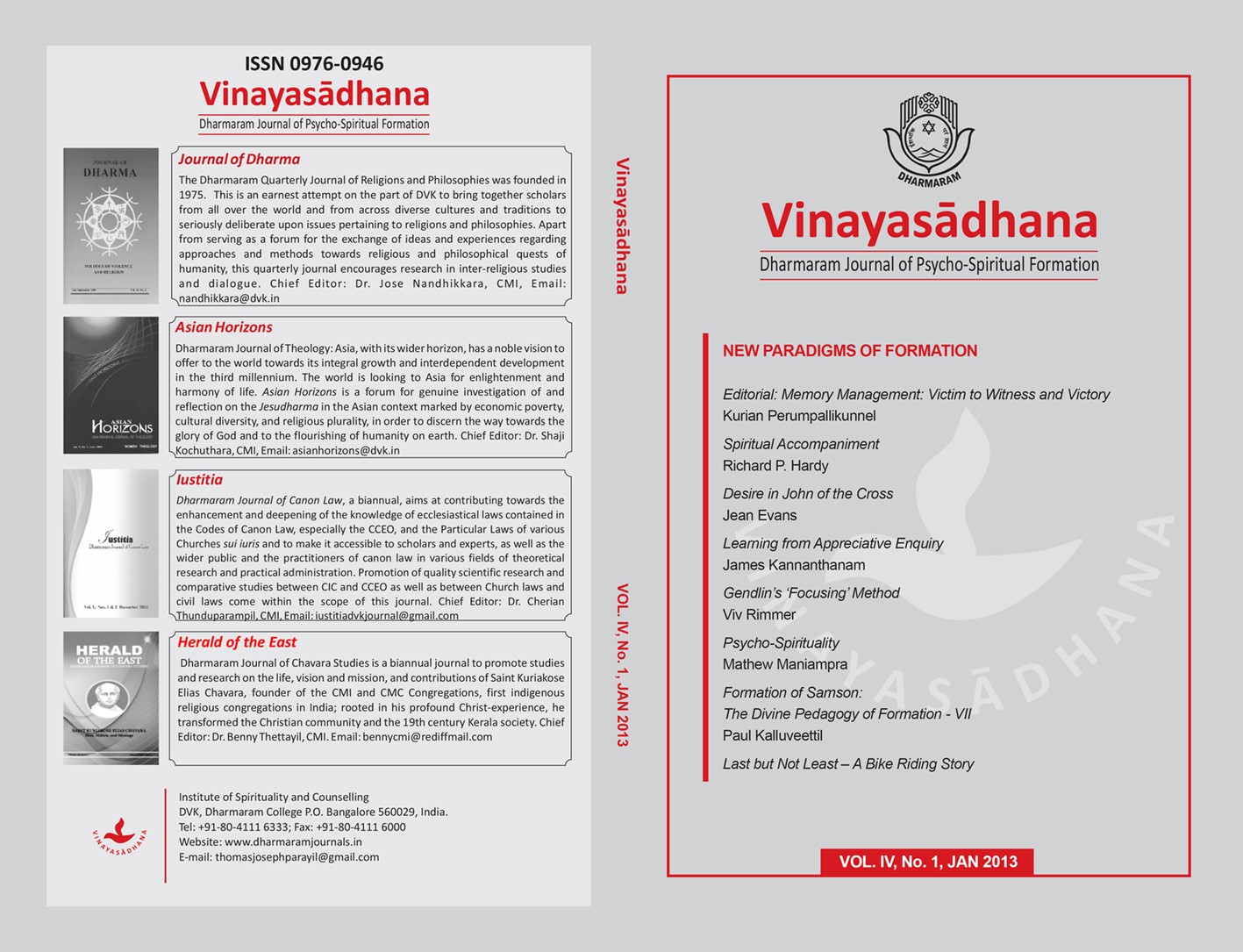Gendlin’s ‘Focusing’ Method as an Aid to Holistic Christian Living
Keywords:
Gendlin, Focusing MethodAbstract
‘Focusing’ is a method developed by Eugene Gendlin that enables a person to listen to and dialogue with our internal, complex, bodily held wisdom. The opening out of the ‘felt sense’ can lead to a wider awareness and connection with the energies of Christian communities, liturgies and holy places, with the collective unconscious of societies, and the community of holy people and supernatural beings beyond time and space validating spiritual experiences of inter-relationality. It enables a person to draw on tacit, wide-ranging knowledge, more than can be consciously recalled and verbalised. The method is divided into stages. First an accepting, friendly space is cleared in the mind, laying other concerns to one side. Then attention is given to how the issue to be worked with is experienced and ‘held’ non-verbally in the body. Being open and at ease with this sort of experience can be a great confirming and deepening influence on faith, but also a radical challenge.
References
Campbell, PA & EM McMahon. (1985) Bio-spirituality: Focusing as a way to grow. Chicago: Loyola University Press.
Dent, B. (1993) Resurrection Love-Life. New York: Paulist Press.
Ellis, RD. (2005) “The Roles of Imagery and Meta-emotion in Deliberate Choice and Moral Psychology”. Journal of Consciousness Studies, 12 (8-10)
Field, N. (1996) Breakdown and Breakthrough: Psychotherapy in a New Dimension. London: Routledge.
Freeman, L. (2011) “It takes a French philosopher to think about why prayer takes us beyond thought” in The Tablet, 12 February 2011.
Fukuyama, MA & TD Sevig. (1999) Integrating Spirituality into Multicultural Counselling. London: Sage.
Gendlin, ET. (1982) Focusing. New York: Bantam.
Griffin, W. (1986) C.S. Lewis: The Authentic Voice. Oxford: Lion.
Hay, D. (2006) Something There: The Biology of the Human Spirit. London: Darton, Longman & Todd.
Heron, J. (1998) Sacred Science: Person Centred Inquiry into the Spiritual and the Subtle. Ross-on Wye: PCCS Books.
Hinterkopf, E. (1994) “Integrating Spiritual experiences in Counseling”.
Counseling and Values, 38 (3).
Leijssen, M. (2007) “Making Space for the Inner Guide”. American Journal of Psychotherapy, 61 (3),
Lewis, CS. (1953) Voyage to Venus. London: Pan.
MacKenna, C. (2005) “A Personal Journey through Psychotherapy and Religion” in Ten Lectures on Psychotherapy and Religion. N. Field (ed.) London: Karnac.
McCabe, H. (2005) The Good Life London: Continuum.
McMahon, EM. (1993) Beyond the Myth of Dominance: an Alternative to a Violent Society. Kansas City: Sheed & Ward.
Sheldrake, R, T. McKenna & R. Abraham. (2001) Chaos, Creativity and Cosmic Consciousness. Rochester, Vermont: Park Street Press.
Sheldrake, R. (2003) The Sense of Being Stared At and Other Aspects of the Extended Mind. London: Hutchinson;
Ulanov, AB. (2000) The Wisdom of the Psyche.
Daimon.www.focusing.org/perlprocess.html. Sondra Perl’s Composing Guidelines. Visited 5/4/11.
http://web.ebscohost.com/ehost/detail?vid=5&hid=110&sid=58a9f9 cf-6df9-4970-8013-0cb8946276f9%40sessionmgr104&bdata=JnN pdGU9ZWhvc3QtbGl2ZQ%3d%3d#db=aph&AN=9709102068 Visited 10/4/11.
http://www.focusing.org/short_forms.htm. Visited 13/10/ 2012.


